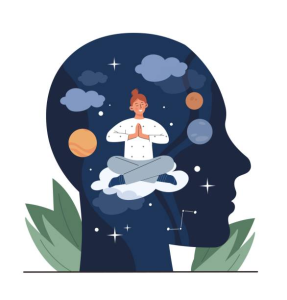 Self-care, though having been more popularized by mainstream media and the rise of mental health awareness, is still a foreign term to some. Simply put, self-care means taking care of yourself in doing things that you enjoy and that fill up your cup – meaning, what you do to recharge and revitalize yourself emotionally, mentally, and physically. Self-care means recognizing what your needs are and taking steps towards establishing your well-being as a priority in a world that consistently demands your productivity. Though it may come across as self-explanatory in its definition, the disconnect tends to be surrounding the lack of understanding of what it means for you as individual and how it looks in active practice, especially amongst your other responsibilities.
Self-care, though having been more popularized by mainstream media and the rise of mental health awareness, is still a foreign term to some. Simply put, self-care means taking care of yourself in doing things that you enjoy and that fill up your cup – meaning, what you do to recharge and revitalize yourself emotionally, mentally, and physically. Self-care means recognizing what your needs are and taking steps towards establishing your well-being as a priority in a world that consistently demands your productivity. Though it may come across as self-explanatory in its definition, the disconnect tends to be surrounding the lack of understanding of what it means for you as individual and how it looks in active practice, especially amongst your other responsibilities.
You might have heard others say that self-care isn’t selfish, but to add to that notion, in the words of one of our very own clinicians, “self-care is a need, not a luxury.” It’s important for us as individuals to nurture the relationship we have with ourselves as that is key to maintaining a balanced, healthy lifestyle that allows us to show up for others and face life’s challenges in a capacity that does not drain us overtime. It is not helpful to view self-care as a pointless pleasure or something that only those with ample free time can afford. With that being said, let’s explore reframing our understanding of this essential practice by challenging some common myths.
- Self-care does not mean neglecting responsibilities. There can be a healthy balance between being able to show up for yourself and others. Re-centering yourself allows you to be in a much greater state of being which ultimately allows you to show up for your responsibilities more effectively. It’s not about neglecting your duties, but rather about ensuring that you’re in the best possible condition to fulfill them.
- Self-care is not only for those struggling mentally or experiencing burnout. It is understandable to believe this as mental health issues often have a negative impact on someone’s ability to take care of themselves. However, everyone benefits from taking effective care of themselves and needs to. It is just as good as a strategy to combat those issues as it is to prevent them. Regularly incorporating self-care practices into your life strengthens your ability to navigate life’s challenges, builds your resiliency and builds your ability to cope with stressors as they arise.
- Self-care does not have to be expensive or last a whole day. It is easy to forget the ways in which we are already taking care of ourselves, such as brushing our teeth, taking a shower, or eating a healthy meal. And this also suggests that there is no right way to do self-care – it can be as simple or as complex as you would like if it works for you. Effective self-care can cost nothing, such as walking outside for 30 minutes, dancing to your favorite song in your room, or if you’re able to spend a little extra, planning a massage and even going on a vacation. You are truly marching to the beat of your own drum as the goal is to do something you’d enjoy and something that pours back into you.
- Self-care does not only involve doing something relaxing or enjoyable. It has no limits as it is dependent on you and nurturing all aspects of your well-being, including physical, emotional, mental, and spiritual health. So, if that means setting boundaries with someone, having tough conversations, making hard decisions, or even just doing mundane but necessary tasks like doing your laundry, while it may not be fun in the moment to do, you will be able to thank yourself later.
As you reflect on what self-care looks like for you, we encourage you to experiment with different self-care techniques and find what resonates best with you and your lifestyle. If you need extra help, consider seeking support from a counselor or therapist. Capital EAP is available to you to speak to a professional that can help you explore and identify effective self-care strategies, navigate challenges, and develop coping skills to enhance your overall well-being. You can reach out to us at 518-465-3813 to set up an appointment. Remember, prioritizing self-care is not a luxury, but a necessity for maintaining a healthy and balanced life.
By, Nakisha Williams, MHC Intern
